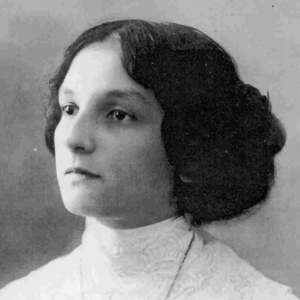María Jesús Alvarado Rivera facts for kids
Quick facts for kids
María Jesús Alvarado Rivera
|
|
|---|---|
 |
|
| Born |
María Jesús Alvarado Rivera
27 May 1878 Chincha Alta, San Isidro, Lima, Peru
|
| Died | 6 May 1971 San Isidro, Lima
|
| Parent(s) | Cayetano Alvarado Arciniega and Jesus Rivera Martinez |
María Jesús Alvarado Rivera (born May 27, 1878 – died May 6, 1971) was a Peruvian woman who fought for women's rights. She was also a teacher, journalist, writer, and social activist. In 1969, the National Council of Women of Peru called her the "first modern champion of women's rights in Peru." This means she was a very important leader for women's equality.
Contents
Early Life and Education
María Jesús Alvarado Rivera was born in Chincha Alta on May 27, 1878. Her parents were Cayetano Alvarado Arciniega and Jesus Rivera Martinez. She was one of thirteen children in her family.
When she was young, her family had to sell their land because of the War of the Pacific. They then moved to Lima. Back then, most girls only went to primary school. María Jesús learned to read and write very well during this time. She continued to learn on her own, teaching herself many things.
Later, she went to a private high school. It was run by Elvira García y García, another important leader for women's rights in Peru. After finishing school, María Jesús became a teacher. She thought the old way of teaching was not good enough. So, she studied sociology by herself. She helped bring in new ideas for education, like teaching skills for jobs. She also cared about health and family support for students.
Fighting for Women's Rights
María Jesús started her career as a writer. With help from her brother, she wrote for newspapers like El Comercio and El Diario. She gave her first speech about women's issues at the International Women's Congress in 1910.
The next year, she gave a talk about feminism in Lima. She explained that feminism was part of a big change happening around the world. It was about giving women the same rights as men, including the right to vote. This talk made many people interested in women's suffrage (the right to vote). Some women were very excited, saying she would "liberate us." But others thought her ideas were too extreme. They worried that women would leave their traditional roles and cause problems.
Starting Evolución Femenina
In 1914, María Jesús helped start an important group called Evolución Femenina in Lima. This group worked to change laws so women could have more rights. They also wanted women to get jobs in the government. For nine years, she worked hard on these goals. Because of her efforts, a law was passed in 1922. This law allowed women to join public welfare groups.
However, Evolución Femenina also faced criticism. Not many women wanted to openly join the group. In 1924, a newspaper even showed a photo of her giving a talk. Many women in the picture had covered their faces.
Challenges and Exile
In 1923, María Jesús started the National Council for Women. This happened after Carrie Chapman Catt, a leader for women's voting rights, visited Peru. But this new group had problems. There were disagreements between those who wanted big changes and those who were more traditional.
María Jesús wanted the council to change civil laws. She especially wanted married women to have equal rights. But many newspapers and even some members of the council were against this idea. Despite these challenges, she opened a "Labor and Moral School Workshop." This school helped women learn skills.
Because she strongly supported women's voting rights, María Jesús faced big trouble. She was jailed and then sent away from Peru. The Catholic Women's League and the President of Peru, Augusto B. Leguía, were against her. She spent three months in prison in 1924. Then, she lived in Argentina for 12 years. In Argentina, she taught at schools and wrote plays about social issues.
Later Life and Legacy
After returning to Peru, María Jesús continued her work. She used radio, theater, and movies to push for women's voting rights. She even wrote a play called "The Perricholi," which was played on Radio Nacional del Perú. She also started her own drama school, "Ollanta." This school helped create a new department for culture and art in Peru.
In 1938, she suggested a "Code of Rights" for women. In 1940, she wrote about health for children. In 1945, the government approved her idea to create a national theater. She also became a council member for the city of Lima.
The movement María Jesús started took a long time to succeed. Women in Peru finally got the right to vote in 1955. María Jesús Alvarado Rivera passed away on May 6, 1971, at 92 years old. She was disappointed that her hard work for women's rights was not fully recognized during her lifetime.
On March 8, 2021, the Peruvian Government officially declared María Jesús Alvarado Rivera's work as part of the country's national heritage. This means her contributions are now highly valued and remembered.
See also
 In Spanish: María Jesús Alvarado Rivera para niños
In Spanish: María Jesús Alvarado Rivera para niños

